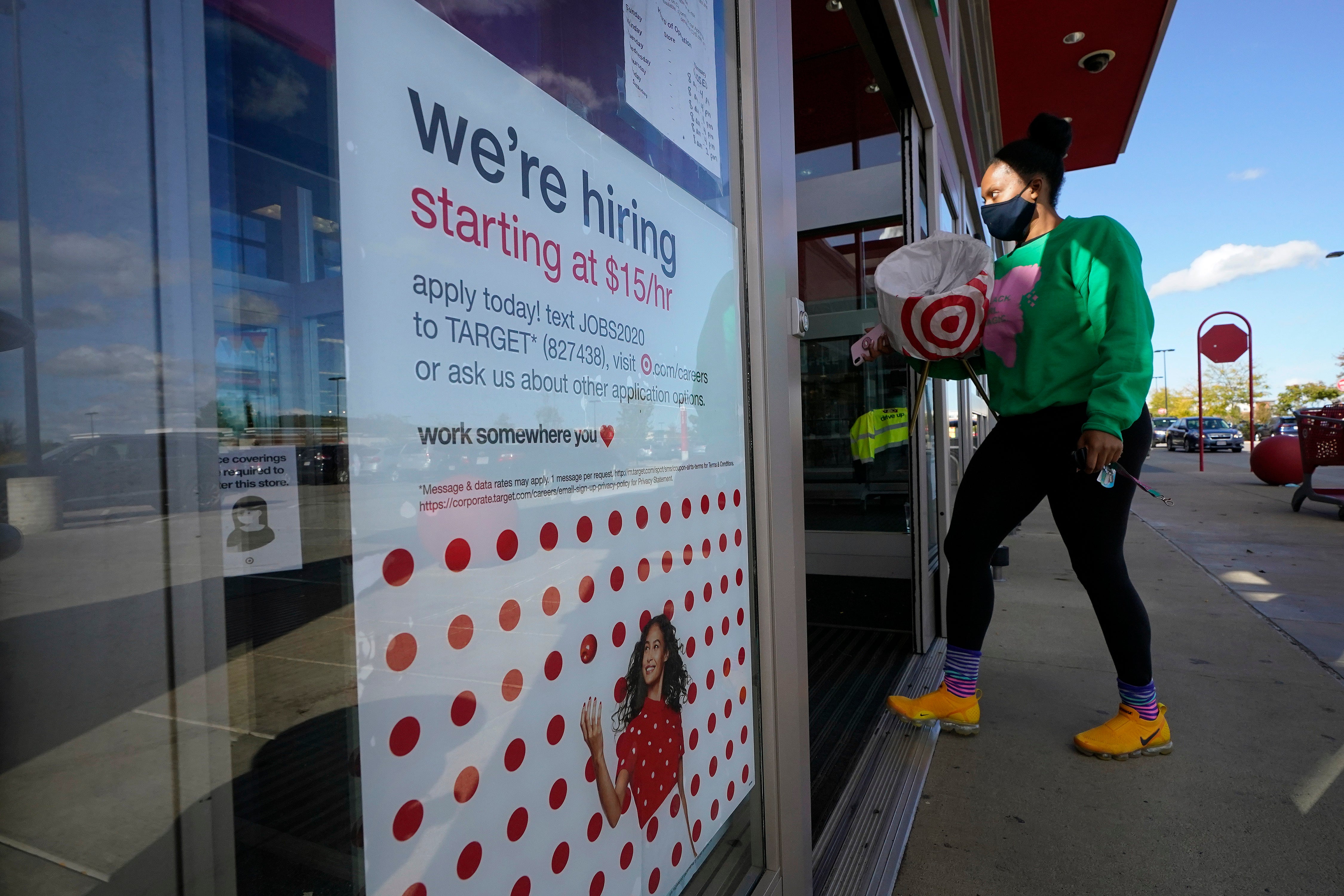US job growth likely rose in February in rebound from slump
U.S. employers likely stepped up their hiring in February as confirmed viral cases declined, consumers spent big chunks of their government aid checks and the economy appeared to be sustaining a tentative recovery

America's employers likely stepped up their hiring in February as confirmed viral cases declined, consumers spent big chunks of their government aid checks and the economy appeared to be sustaining a tentative recovery.
Economists have forecast that job growth reached 175,000 last month, according to data provider FactSet. That would mark a sharp improvement over an average of just 29,000 jobs a month from November through January.
Yet with the nation still 10 million jobs short of its pre-pandemic level, monthly hiring would need to significantly accelerate to bring relief to the many people who remain laid off, especially at restaurants, hotels, entertainment venues and other areas of the hospitality industry that are far from recovered. The unemployment rate is predicted to have ticked up from 6.3% to 6.4% on the assumption that more Americans started looking for work in February and began to be counted as unemployed.
One year into the pandemic, most analysts are growing more optimistic that hiring will accelerate in the coming months, with the economy strengthening and gauges of consumer spending and manufacturing rising. Americans as a whole have accumulated a huge pile of savings after having slashed spending on travel, movie tickets and visits to bars and restaurants. Much of that money is expected to be spent once most people feel comfortable about going out.
And nearly all of President Joe Biden's $1.9 trillion economic rescue package looks likely to win approval in Congress in the coming weeks. It would provide, among other things, $1,400 relief checks to most adults, an additional $400 in weekly unemployment aid and another round of aid to small businesses.
With so much money being pumped into the economy, Oxford Economics now forecasts that growth will reach 7% for all of 2021, which would be the fastest calendar-year expansion since 1984. The Congressional Budget Office projects that the nation will add a substantial 6.2 million jobs this year, though that wouldn't be nearly enough to restore employment to pre-pandemic levels.
Still, the size of the Biden relief package, coming as the economy is already showing improvement, has stoked fears that growth could overheat and spur higher inflation, send borrowing costs up and lead the Federal Reserve to jack up interest rates. Those fears have roiled financial markets for the past two weeks.
Fed Chair Jerome Powell sought to assuage those concerns on Thursday — without success, based on sharp selloffs in the stock and bond markets — when he suggested that any meaningful rise in inflation would likely prove temporary and that the Fed would be in no hurry to raise its benchmark short-term rate.
Nor did Powell offer any hint that the Fed would act to push back against a surge in the yield on the 10-year Treasury note, which has jumped from about 0.9% last year to 1.5% late Thursday. Still, Powell sounded some optimistic notes. Citing in part the increasing distribution and administering of coronavirus vaccines, he said, “There's good reason to expect job creation to pick up in the coming months.”
Other recent economic reports have also suggested better times ahead. Americans sharply increased their spending at retail stores and restaurants in January, when the $600 relief checks were mostly distributed. Retail sales jumped 5.3%, after three months of declines.
Factory output also picked up that month, and demand for long-lasting goods, such as autos and aircraft, rose 3.4%, the government said last week.
Home sales have been on a tear for most of the past year, driven by low mortgage rates and the desire of many Americans for more space during the pandemic. A huge jump in the proportion of people working from home has also driven up sales, which were nearly 24% higher in January than a year earlier.
Bookmark popover
Removed from bookmarks